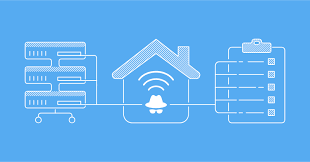Beyond Scraping: How Residential Proxies Supercharge Geo-Targeted Data Harvesting

Introduction
Big Data is no longer about collecting vast volumes of information—it’s about precision, accuracy, and localization. Today’s businesses need more than global insights; they require hyper-local intelligence to understand markets at a granular level. Geo-targeted data harvesting allows companies to uncover country- and city-specific insights, from pricing trends to ad visibility. Unfortunately, traditional scraping tools often fail when data is fragmented across borders and shielded behind protective barriers. This is where residential proxies step in. By leveraging advanced proxy technologies, enterprises gain the ability to bypass restrictions, collect localized data reliably, and make smarter, faster business decisions.
The Big Data Shift: From Global to Local
For years, companies relied on Big Data for macro-level insights. But with consumer behavior and regulatory frameworks varying widely across regions, global data is no longer enough. Businesses now demand region-specific datasets that reveal localized pricing strategies, search engine result pages (SERPs), and ad visibility in different markets.
Consider the differences in product pricing between the US and EU, or how regulations impact online visibility in Asia versus North America. Similarly, regional market sentiment can determine whether a brand resonates with customers in Berlin but falls flat in São Paulo. The new frontier is hyper-local data, and companies that embrace it gain a competitive edge.
Barriers to Accurate Data Collection
While the value of local datasets is clear, collecting them is anything but easy. Websites are fortified with anti-bot systems, rate limits, and CAPTCHAs designed to block automated scraping. IP bans are frequent, especially when businesses attempt large-scale geo harvesting.
Datacenter proxies and VPNs, while useful for basic browsing, lack the scalability and authenticity required for enterprise-grade data collection. They are easily flagged and blocked, leading to incomplete or biased datasets. Inaccurate data collection is not just inconvenient—it can misinform decision-makers and result in wasted budgets and missed opportunities.
Residential Proxies as the Solution
Residential proxies, unlike datacenter alternatives, route traffic through IP addresses provided by real Internet Service Providers (ISPs). This makes them indistinguishable from everyday human users, allowing businesses to access region-locked content with minimal detection risk.
Their technical capabilities include automatic IP rotation, sticky sessions for consistency, and ISP-level trust, all of which enable robust and scalable harvesting pipelines. With residential proxies, enterprises can reliably gather accurate data, unblock geo-restricted websites, and reduce the risk of interruptions. In essence, they form the backbone of modern geo-targeted data strategies.
Use Cases of Geo-Targeted Data Harvesting
In e-commerce, companies rely on residential proxies to monitor global prices, ensuring competitive positioning and keeping track of rival promotions. In digital advertising, brands verify ad placements across regions, testing how campaigns appear to real audiences in multiple countries.
Financial institutions use residential proxies for fraud detection and compliance monitoring, ensuring they meet regulatory obligations while identifying suspicious behavior. Meanwhile, SEO and marketing professionals capture SERP snapshots from diverse regions to tailor campaigns effectively. Each of these use cases demonstrates why residential proxies are trusted by global partners who prioritize precision and compliance.
Building Trustworthy Big Data Pipelines
Residential proxies are not just about access—they are about ensuring quality. Clean, accurate, and representative datasets form the basis of reliable analytics. With robust proxy frameworks, businesses can eliminate bias caused by incomplete or blocked datasets.
Security and compliance are equally critical. Leading providers align with standards such as ISO/IEC 27001:2017 and adhere to privacy regulations like GDPR and CCPA. When integrated responsibly, proxies transform into essential components of a trustworthy Big Data workflow, empowering businesses to scale without compromising integrity.
Why GonzoProxy Powers Enterprise Harvesting
Among proxy providers, GonzoProxy stands out as a leader in enterprise-grade data harvesting. With over 20 million IPs spanning 190 countries and 2000+ cities, GonzoProxy offers unmatched coverage and fine-grained targeting down to the country, city, and ISP level.
For developers, the platform provides seamless API integration and automation tools, enabling fast deployment and scaling of data collection pipelines. A smart dashboard and analytics suite give businesses real-time visibility into proxy performance. Around-the-clock support is available via Telegram, ensuring assistance is always within reach.
Whether you’re an enterprise looking to expand into new regions or a digital marketer seeking accurate SERP data, GonzoProxy offers the flexibility you need. The best way to succeed is to start with the right plan and explore their tailored pricing options today.
FAQs
- What makes residential proxies better than datacenter proxies for geo-targeted data harvesting?
Residential proxies use IPs from real Internet Service Providers, making them appear as genuine users. Unlike datacenter proxies, which are often flagged and blocked, residential proxies offer higher reliability and access to region-specific content. - Can residential proxies help businesses comply with global data regulations?
Yes. Leading proxy providers ensure compliance with privacy standards like GDPR and CCPA. When used responsibly, proxies enable businesses to gather accurate datasets without violating regional regulations. - What industries benefit most from geo-targeted data harvesting?
E-commerce, finance, advertising, and SEO/marketing are the primary industries leveraging residential proxies. They use proxies for global price monitoring, fraud detection, ad placement verification, and localized SERP tracking. - How do rotating and sticky sessions work in residential proxies?
Rotating sessions automatically switch IP addresses, preventing bans during large-scale scraping. Sticky sessions, on the other hand, maintain the same IP for a set duration—useful for tasks requiring consistent identity. - How can businesses choose the right residential proxy plan?
It’s essential to assess needs such as location coverage, IP pool size, and integration options. Providers like GonzoProxy make it easy to start with the right plan, offering flexible pricing tailored for enterprises and developers alike.

Source: Beyond Scraping: How Residential Proxies Supercharge Geo-Targeted Data Harvesting

